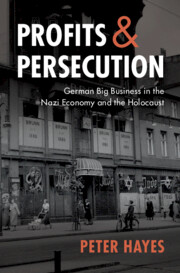The grand hoteliers of Berlin, who were also German financial, industrial, and commercial elites, cast their lot with Hitler in 1932. Several factors played into the decision, but the most important was an unshakable pessimism, born of the chaos of 1918–23, especially the hyperinflation of 1923, that never quite dispelled in the years of relative prosperity of 1924–28. After 1929, during the Great Depression, this pessimism hardened into fatalism: that is, certainty that business would fail under present conditions. Under the influence of a contagious fatalism endemic to their milieu by 1932, the Kaiserhof’s owners, in particular, would not have seen or understood the ramifications of their decision to let Hitler use the hotel as his headquarters. On the one hand, the decision at least kept open the possibility of a different future under the next regime. And on the other hand, the alternative, ejecting Hitler, might trigger immediate and violent retaliation by the Brownshirts. In the end, however, these same hoteliers, because they were Jewish, found themselves running for their lives as some of the earliest victims of the Nazi persecution.


